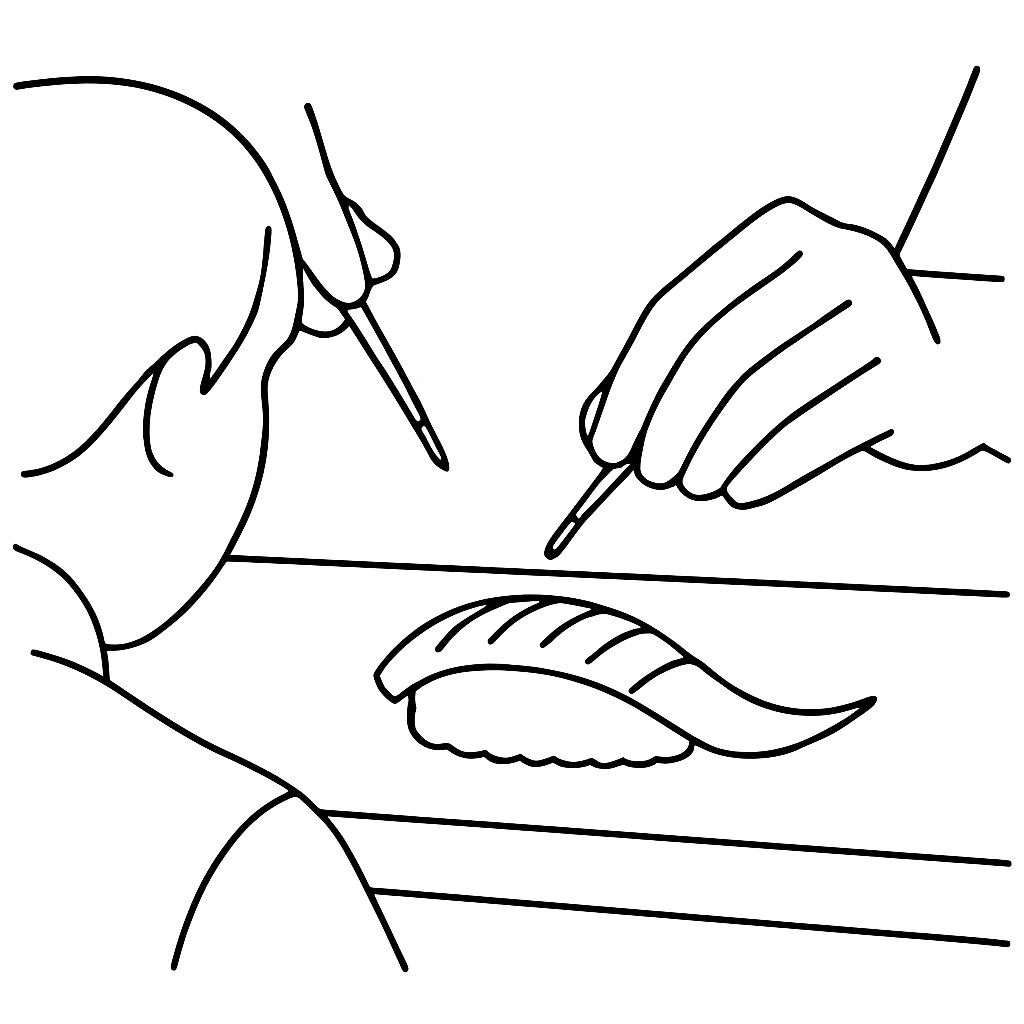2-06: The Fleetingness of Creation
When Beauty Lives Only in the Moment
Last night, I sat at the sushi counter watching the chef's hands move with precision and grace. His creations were unquestionably works of art, with rice sculpted into uniform mounds, fish laid on top ever-so-gently, and a single dot of sauce added with precision. Then, in less than a minute, it was gone. We ate it, smiled, and moved on. The beauty disappeared as quickly as it arrived, living only in that moment. I thought deeply about how fleeting it was, about how quickly it vanished. Upon further consideration, I realize that I draw a very firm line between acts of creation that last and art that fades away, either instantly, or gradually. So many fleeting forms of art come to mind, like omakase dinners or the intricate sand art we used to see on eastern shore beaches growing up. The former disappears in seconds, and the later may survive a long weekend or until the next storm arrives. Both must be witnessed first-hand, and there will never be an identical created.
The recent sushi experience made me think about the kinds of work built on impermanence. Chefs, barbers, florists, actors, and many other crafts create art that is intended to vanish. A perfect haircut grows out. A bouquet wilts. A monologue echoes once and then never again. These are all equivalent to a painter spending an entire day on a canvas, setting it on fire, and coming back the next morning to do it again, not in despair, but in peace.
There’s something noble and profound about the ability to see your work of art disappear, intentionally. These artists must find nothing more satisfying than seeing their art enjoyed in front of them, in those moments. These artists of the temporary are not clinging to what they make but finding meaning in the act of creation. A great haircut might only last two weeks, but it can change how someone carries themselves and make them feel more confident. A michelin-star meal may be elegantly devoured over the course of an evening, but will be remembered for a lifetime.
Maybe that’s why I’ve never fallen in love with cooking, despite loving good food. Deep down, I think I crave permanence. I want to point to something and say, "I made that," knowing it will be around tomorrow. That’s probably why I had a short fling of making gourmet chocolates. Gourmet chocolates sit at a crossroads between these two. They are certainly edible, but are also beautifuly crafted and last for a while longer. You can admire them, photograph them, save them for the right moment. They don’t vanish immediately. They hold a little more space in time.
I can’t help but wonder if the ephemeral creators know something I don’t. Perhaps they simply have a smaller ego, and don't care to impress the next stranger who happens to come across your canvas. The world's greatest chefs are renown for what they are capable of creating, in addition to the experiences that others have had through enjoying what they have already created. The world's greatest artists are renowned more so for what they have already created, in addition to, but less so, for what they will create. Maybe the work of these artists forces them to be present in a way that permanence can’t. A chef has no choice but to care only about this dish, in this moment, to be consumed by this person. There is no portfolio of works to show off, nor a painting to hang, just the memory of having made something beautiful.
All of this brings me back to thinking of sandcastles, meticulously crafted by young and old, only to be washed away by the tide a few hours later. The joy wasn’t in keeping them forever, but in building them and admiring them before watching them disappear. Maybe that's the mindset of barbers, chefs, florists, and others who create beautiful things that are never meant to last. They understand that making something meaningful doesn't always have to mean making something permanent.
What about you? Do you prefer to create things that last or do you find joy in the fleeting? When was the last time you made something and is it still here or did it vanish? Did the satisfaction come from the making it, keeping it, or seeing the joy it brought others? I'm realizing there is something sacred in letting go. Some of life’s most beautiful moments can’t be preserved. They must be experienced fully, then left to be eaten, or washed away by the sea. Maybe the point isn't to preserve every beautiful thing, but simply to be fortunate enough to witness it, whether you're the one creating it or the one taking it in.


